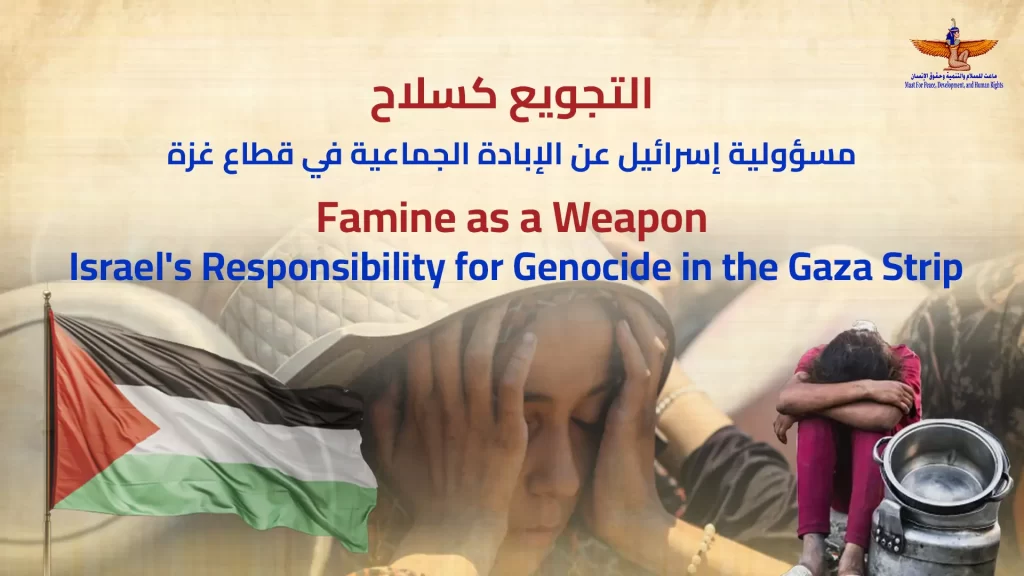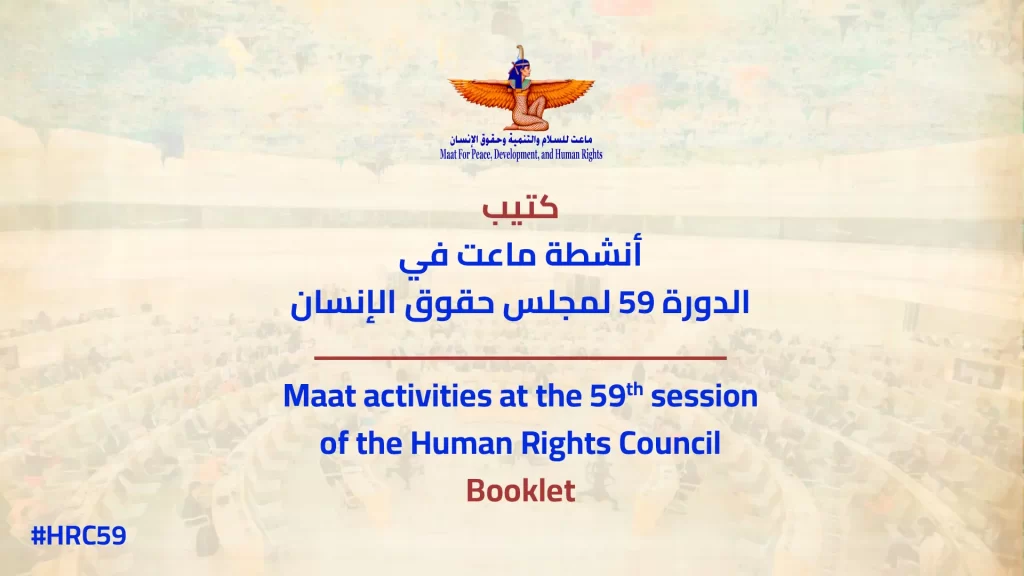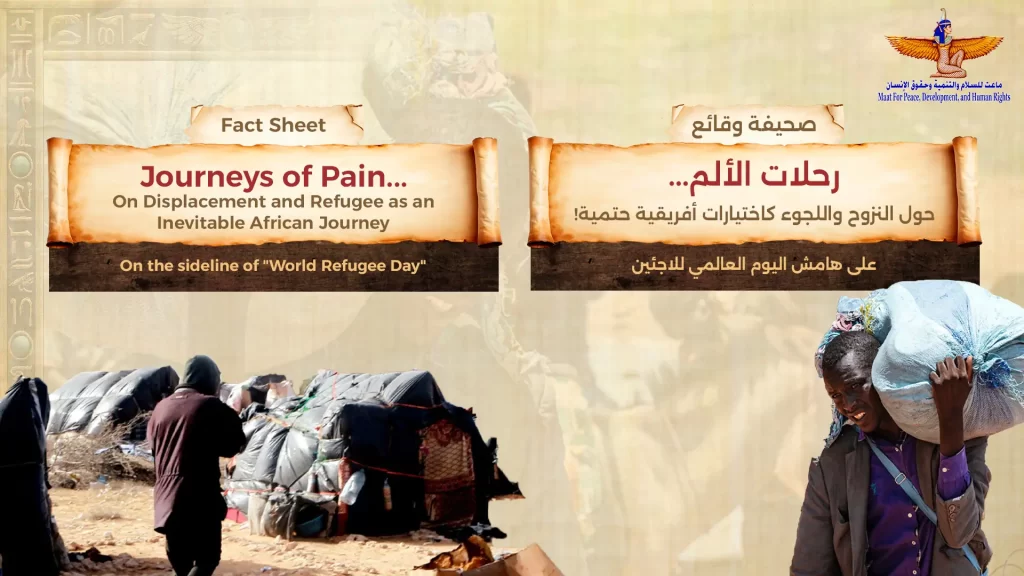Introduction
March 21st every year marks the International Day for the Elimination of Racial Discrimination, which is an occasion to reflect on the progress made in combating hate speech and racial discrimination against ethnic and religious minorities in an attempt to promote a global culture of tolerance, equality and anti-discrimination as well as rejecting racial prejudices, and as such, some countries witness In the Middle East region, indicators or manifestations of violations of the rights of minorities for considerations related to decision-makers' perceptions of these minorities as a threat to the overall social and ideological pattern that governments try to impose on society to control general aspects of the social and political life of citizens aiming to impose complete control to ensure that the power of the elite and class is not threatened. Ruling This ideology may be religious, ethnic, or both.
Consequently, it believes that the cultural and social diversity resulting from the multiplicity of ethnic minorities threatens this comprehensive framework. Instead of recognizing the cultural and social rights of minorities, whether ethnic or religious, it tries to impose a cultural framework that serves the goals of the state and includes a specific language, unified education, and sometimes one religious orientation, this comes in addition. To a group of human rights violations that include extrajudicial killings, suppression of human rights defenders, cases of torture, medical neglect and other various violations, and governments justify these violations under populist slogans representing the preservation of the state's national security by issuing letters addressing the danger of these minorities to the geographical unity of the region Country.
In this context, international law and international treaties provide for the right of ethnic, religious or linguistic minorities to enjoy their culture, to profess and practice their religion, or to use their language, such as Article Two of the International Convention on the Elimination of All Forms of Racial Discrimination, and then during the recent developments in the East region. Al-Awsat is based on the rise of certain ideological projects that ignore the rights of ethnic and religious minorities and only recognize them under pressure from the international community and international governmental and non-governmental organizations working in the field of human rights.
and then; This study sheds light on the violations of the rights of minorities in the Middle East region in three main countries that represent the epicenter of the rise of nationalist and religious ideological projects that ignore the rights of minorities, The first country It is the Islamic Republic of Iran, which brings together the Shiite Islamic identity and the historical Persian culture in the face of the rights of minorities from the indigenous peoples other than Persia and which does not adopt Shiite Islam as a source of religion, such as the Ahwaz Arabs and the Baha'i community, while the Turkish Republic is considered The second country Which adopts Ataturk nationalism in the face of the rights of the Kurdish people in southeastern Turkey with some skirmishes with other religious minorities such as Christians, while it is considered a state Israeli occupation It is the third model due to its adoption of the Jewish nation-state model, which opposes the rights of 48 Arabs within Israeli society and the rights of Ethiopian Jews, while the study ignores the differences between Ashkenazi Jews and Falasha Jews as skirmishes of the same Jewish ethnic group that makes up the community.
In the beginning, the study discusses the situation of minorities in international humanitarian law and international treaties, while presenting the laws that work to distinguish between minorities in Iran, Israel and Turkey, which are laws that legitimize violations and diminish the cultural and social rights of these minorities, so that the Persian language is compulsorily taught in Iran to ethnic and religious minorities. Such as (Ahwaz, Baluchis, Turkmen, Kurds, and others), while the laws in Turkey do not allow minorities such as Roma and Kurds not to use the mother tongue or study in it, and ignore their cultural history, and in Israel only the Jewish identity and nationalism are recognized in the laws, while the members of these minorities defend On their cultural and social rights, and they are exposed to a range of different violations such as assaulting some of their rights to life, arbitrary arrests, suppression of peaceful gatherings, torture and other various related violations, and finally, the study presents a set of recommendations to address the human rights situation of these minorities in the aforementioned countries in an attempt to recognize their cultural and social rights. Different.
Systematic racism: a legal framework that permits discrimination against minorities
Despite the fact that international laws and charters provide for guaranteeing the rights of minorities and indigenous peoples, as the International Covenant on Civil and Political Rights states in its first article on the right of peoples to self-determination with the need to respect the rights of cultural and social minorities and ensure their inclusion in society and the practice of its rituals or in the use of their language. Article 27 of the same covenant promotes the cultural, linguistic and social rights of various minorities, while Article 5 of the International Convention on the Elimination of All Forms of Racial Discrimination states that there is respect for non-discrimination between citizens on the basis of race, color, or national or ethnic origin, and it is an explicit call for the need to respect the rights of Religious and ethnic minorities, while the Universal Declaration on the Rights of Persons Belonging to National or Ethnic, Religious and Linguistic Minorities provides for a set of principles that states must follow in order to respect the rights of minorities, among which is the necessity to respect the cultural and educational rights of minorities and the obligation of states to provide them for citizens of these minorities, except Laws in Iran, Turkey and Israel perpetuate discrimination and racism against minorities.
In Turkey Despite its ratification of the various international conventions that guarantee the rights of religious and ethnic minorities, such as the International Covenant on Civil and Political Rights, the International Convention on the Elimination of All Forms of Racial Discrimination and the European Convention on Human Rights, the Turkish constitution and laws contain a set of different articles devoted to the situation of discrimination and marginalization that Many minorities suffer from it, with the lack of adequate legal and constitutional articles that guarantee the protection of minorities from racial discrimination on the basis of religion or ethnicity or fight the various negative practices that encourage persecution or discrimination.
As Article 42 of the Turkish constitution states It is not permissible to teach any language other than Turkish as a mother tongue for Turkish citizens in any training or education institutions, while the law specifies the foreign languages that are taught in training and education institutions and the rules to be followed in schools that conduct training and education in a foreign language, and this article allows the Turkish government to control In teaching the Armenian language and the Kurdish language, which constitutes restrictions on the educational rights of different minorities.

To obtain a complete copy of the report, please complete the following information: -
shortlink: https://maatpeace.org/en/?p=32259












